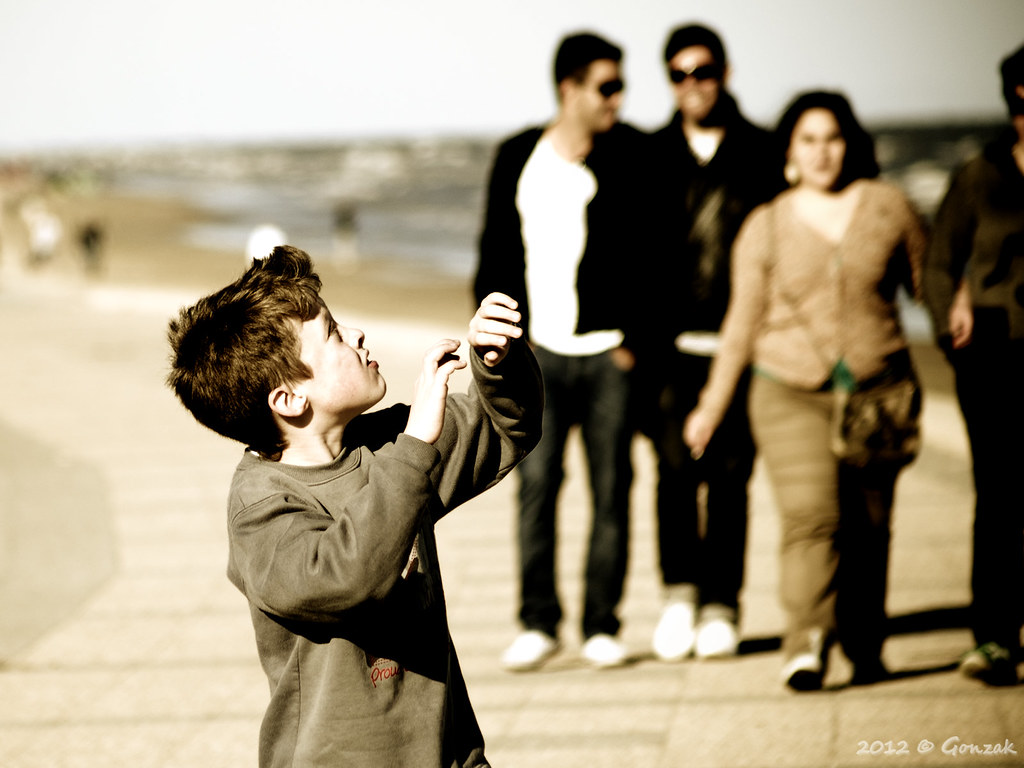 |
| Photo credit: Gonzak on Flickr |
This fear, I think, comes from the frequently discouraged Mary Sue conversations that come up, in which writers basically use a wish-fulfillment version of themselves as the protagonist. But when it comes to writing marginalized characters, that's not really what "writing your own story" means.
I do get the anxiety, though—up until recently, I'd never really considered writing with more than one or two aspects of my identity; after all, wouldn't it be kind of self-centered to write a character so very much like myself?
I think, however, when I used to consider (and reject) the idea, I was thinking about it the wrong way. Because when you're writing a character with the same marginalizations or experiences as you, it's not about writing you exactly—down to your personality/looks/baby clone version of yourself. It's about writing a character that teen you—or maybe now you—could relate to. It's about writing a character that someone else who has some of the same experiences as you, who is looking for a mirror book and not finding it, could read and think this is it. This is me. You get it.
As of writing this post, I have never read a character who embodied every (or honestly, even more than one or two tops) aspect(s) of my identity. I've read characters who are anxious, characters who are Latinx, a character who deals with chronic pain (though her pain was very different from mine), and a tomboy character. I've read fractions of my identity spread out over loads of different stories, and each time was a little reflective mirror shard that I could dust off and say this part I understand.
But a whole mirror? Nope. And judging by conversations I've seen on Twitter, I'm not the only one.
To be fair, for a long time I didn’t bother looking for mirror characters either, because I’d convinced myself those bits of my identity were invisible, unimportant, and/or just me. But maybe if I’d come across more characters like myself, I would’ve embraced those other parts of my identity sooner. I guess I’ll never know.
But what I’m trying to say is this is one of the many reasons why intersectional characters are important. And this is one of the many reasons why sharing your story, whatever that story is, isn’t necessarily just for you and definitely isn’t self-centered—because while no one will have the exact same experiences you do, there are absolutely others out there who may share many of the same intersections. People who have settled with picking up tiny mirror shards without ever really hoping to see themselves completely. People who have decided those intersections don’t count, and don’t matter, and are probably just them anyway.
And that’s why I’ve decided sharing my story is important. And that’s why sharing your story is important. You’ll never know how many kids out there could read your story and see more of themselves in it than they’ve seen anywhere else if you don’t write it to begin with.
The online YA community has shown me that sharing my story is important. And if you don’t know it already, I hope you’ll come to see your story is important too. And only you can tell it.
As of writing this post, I have never read a character who embodied every (or honestly, even more than one or two tops) aspect(s) of my identity. I've read characters who are anxious, characters who are Latinx, a character who deals with chronic pain (though her pain was very different from mine), and a tomboy character. I've read fractions of my identity spread out over loads of different stories, and each time was a little reflective mirror shard that I could dust off and say this part I understand.
But a whole mirror? Nope. And judging by conversations I've seen on Twitter, I'm not the only one.
To be fair, for a long time I didn’t bother looking for mirror characters either, because I’d convinced myself those bits of my identity were invisible, unimportant, and/or just me. But maybe if I’d come across more characters like myself, I would’ve embraced those other parts of my identity sooner. I guess I’ll never know.
But what I’m trying to say is this is one of the many reasons why intersectional characters are important. And this is one of the many reasons why sharing your story, whatever that story is, isn’t necessarily just for you and definitely isn’t self-centered—because while no one will have the exact same experiences you do, there are absolutely others out there who may share many of the same intersections. People who have settled with picking up tiny mirror shards without ever really hoping to see themselves completely. People who have decided those intersections don’t count, and don’t matter, and are probably just them anyway.
And that’s why I’ve decided sharing my story is important. And that’s why sharing your story is important. You’ll never know how many kids out there could read your story and see more of themselves in it than they’ve seen anywhere else if you don’t write it to begin with.
The online YA community has shown me that sharing my story is important. And if you don’t know it already, I hope you’ll come to see your story is important too. And only you can tell it.
Have you ever written a character with multiple parts of your identity? Or read a character with multiple parts of the author’s identity?
Twitter-sized bites:
In terms of intersectionality, is writing your own story self-centered? @Ava_Jae says no, and this is why. (Click to tweet)
"The online YA community has shown me that sharing my story is important." (Click to tweet)








No comments:
Post a Comment